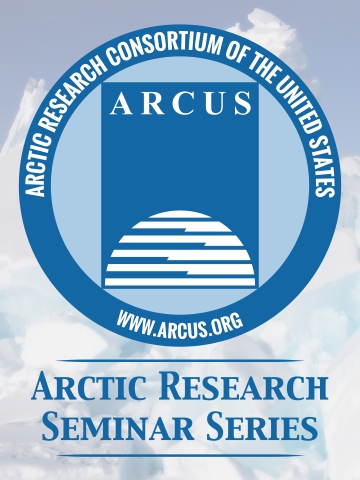ARCUS invites registration for the next Arctic Research Seminar featuring Dr. Kirsi Latola, UArctic’s Vice-President of Networks, titled "UArctic Thematic Networks: A Tool for Joint Research and Education" will be held via Zoom.
Registration is required for this event. Instructions for accessing the webinar will be sent to registrants prior to the event.
Abstract
The University of the Arctic (UArctic) is a network of 230 universities, colleges, research institutes, and other organizations concerned with education and research in and about the North. UArctic builds and strengthens collective resources and infrastructures that enable member institutions to better serve their constituents and their regions. The tools for joint research and research-based education are Thematic Networks. Thematic networks are theme-based international and diverse groups of individuals and organizations who create opportunities for students, conduct joint research, and share knowledge on topical Arctic issues.
In this presentation, Dr. Latola will talk about UArctic’s Thematic Networks, how they are endorsed, how they function, and the different pathways that individual researchers and institutions can take to participate in them. She will show examples of Thematic Network joint activities, and will also briefly share news on the next UArctic Congress 2022, which will be held in Moscow in October 2022.
Speaker Details
Over the past fifteen years PhD Kirsi Latola has worked in several Polar coordination actions and holds a positions of research coordinator at the Thule Institute at the University of Oulu, Finland. She has managed several national and international projects on Arctic research, coordination and knowledge sharing including organising several international events. Broad knowledge particularly on Arctic research and infrastructures led also to her appointment to the chair of European Polar Board in 2017, where she is now in her second term. In her position as a UArctic Vice President Networks she leads University of Arctic’s network activities and supports over 60 Thematic Networks. In addition to her work for UArctic and supporting the Arctic research conducted at the University of Oulu, she acts as a Transnational access Watch Dog in INTERACT - International Network for Terrestrial Research and Monitoring in the Arctic (H2020 2016-21, 2020-24) and leads a work package on stakeholder engagement in the EU-PolarNet 2 project on coordinating and co-designing the European Polar Research area (H2020, 2020-2024). Her expertise in the project is a stakeholder engagement which follows the work and white paper she completed during the first EU-Polarnet (2015-20).

